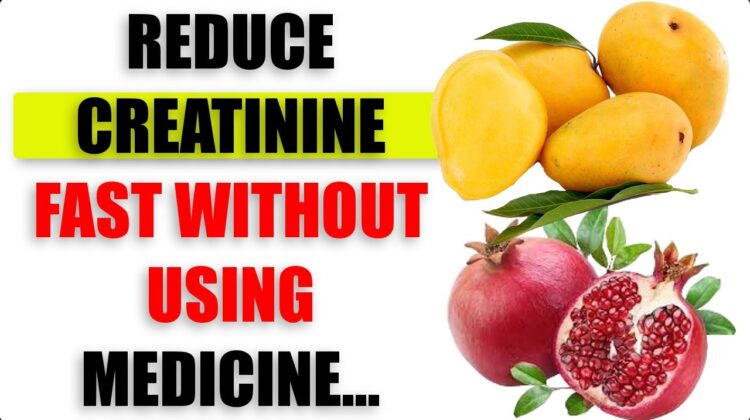
If you’re looking to improve your kidney health, whether for yourself or a loved one, you’ve come to the right place. The foods you consume play a critical role in supporting kidney function, reducing inflammation, and maintaining overall well-being. In this article, we’ll explore six powerhouse foods that can help kidney patients lead healthier lives.
1. Mango
Mangoes are not only delicious but also packed with essential nutrients that benefit kidney health. One of the key compounds found in mangoes is mangiferin, a potent antioxidant known for its anti-inflammatory and kidney-protective properties. Research from the Journal of Pharmacy and Pharmacology highlights mangiferin’s ability to combat oxidative stress, a major factor in kidney disease progression.
Why Mangoes Are Good for Kidney Patients:
- Rich in fiber and pectin, which help regulate cholesterol and blood sugar levels.
- Low glycemic index, making them safe for diabetic kidney patients.
- High in vitamins A and C, which support immune function and overall health.
While mangoes do contain potassium, consuming them in moderation—such as half a mango per serving—can be a great way for kidney patients to enjoy their benefits without exceeding potassium limits.
2. Legumes and Beans
Legumes and beans are excellent sources of fiber, plant-based protein, and essential minerals. They aid in digestion, regulate blood sugar, and contribute to heart health.
Best Legumes for Kidney Health:
- Green Beans: Low in potassium (only 21 mg per cup) and an excellent source of fiber.
- Green Peas: Contain moderate potassium (354 mg per cup) but are also rich in magnesium and calcium, which help regulate blood pressure.
Other options, such as fava beans and chickpeas, are nutrient-dense but should be consumed in moderation due to their higher potassium levels. Incorporating legumes into your diet can support kidney function while providing essential nutrients for overall health.
3. Black Plums
Black plums are nutritional powerhouses that offer significant benefits for kidney health. They are part of the same family as peaches and apricots and contain anthocyanins, powerful antioxidants that help fight inflammation and oxidative stress.
Why Black Plums Are Beneficial:
- Moderate potassium levels, making them safe for kidney patients.
- High in fiber, which supports digestive health.
- Rich in magnesium and calcium, essential for maintaining normal blood pressure.
Plums also help with digestion and can be a great natural remedy for constipation, a common issue among kidney patients.
4. Rice
Rice is a staple food in many cultures and a safe carbohydrate source for kidney patients. While some believe that white rice is unhealthy, it is actually lower in potassium and phosphorus than brown rice, making it a better choice for those with kidney disease.
Why White Rice is Good for Kidney Patients:
- Low in potassium (13 mg per half-cup serving) and phosphorus (60 mg per serving).
- Easily digestible, making it ideal for individuals with digestive sensitivities.
- Gluten-free and energy-boosting.
For those looking for alternatives, basmati rice and jasmine rice are also excellent choices. While brown rice has more fiber, it also contains higher potassium and phosphorus levels, making it less ideal for advanced kidney disease patients.
5. Leafy Greens
Leafy greens are packed with vitamins and minerals, but some contain higher levels of potassium than others. The key is to choose the right greens that provide essential nutrients while keeping potassium intake under control.
Best Leafy Greens for Kidney Patients:
- Kale: One of the lowest potassium cooked greens (300 mg per cup), rich in iron and vitamin C.
- Cabbage: Contains only 150 mg of potassium per cup, making it a great alternative to higher-potassium greens.
- Lettuce: One of the lowest potassium greens with just 70 mg per cup.
Including these greens in your diet daily can provide essential vitamins and antioxidants while supporting kidney function.
6. Pomegranate
Pomegranates are packed with anthocyanins and polyphenols, powerful antioxidants that help reduce oxidative stress and inflammation—two key contributors to kidney damage.
Benefits of Pomegranate for Kidney Health:
- Helps lower blood pressure, reducing strain on the kidneys.
- Supports heart health, which is crucial for individuals with kidney disease.
- May help reduce creatinine levels and slow kidney disease progression.
Drinking a small glass of pomegranate juice daily can be a great way to enjoy its kidney-protective benefits.
Final Thoughts
Making smart dietary choices is essential for maintaining kidney health and preventing further complications. The 6 best natural foods kidney patients must eat—mangoes, legumes, black plums, rice, leafy greens, and pomegranates—offer essential nutrients while supporting kidney function and overall well-being.
For more healthy eating tips, check out our guide on Foods With No Carbs And No Sugar.
By incorporating these nutrient-rich foods into your diet, you can take proactive steps toward improving kidney health and leading a vibrant, fulfilling life.
Do you have a favorite kidney-friendly food? Let us know in the comments below!
Leave a Reply